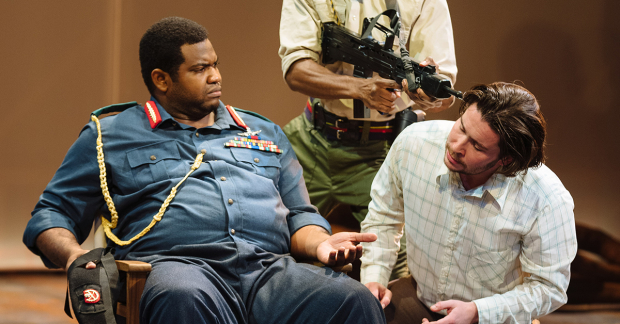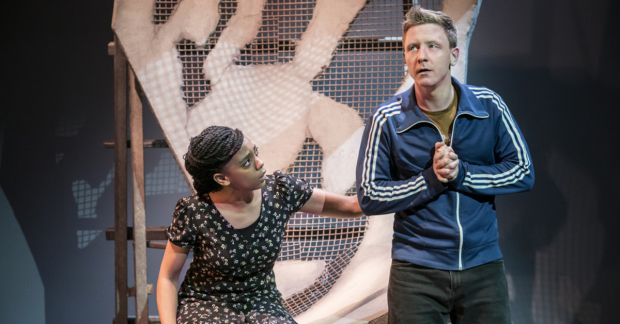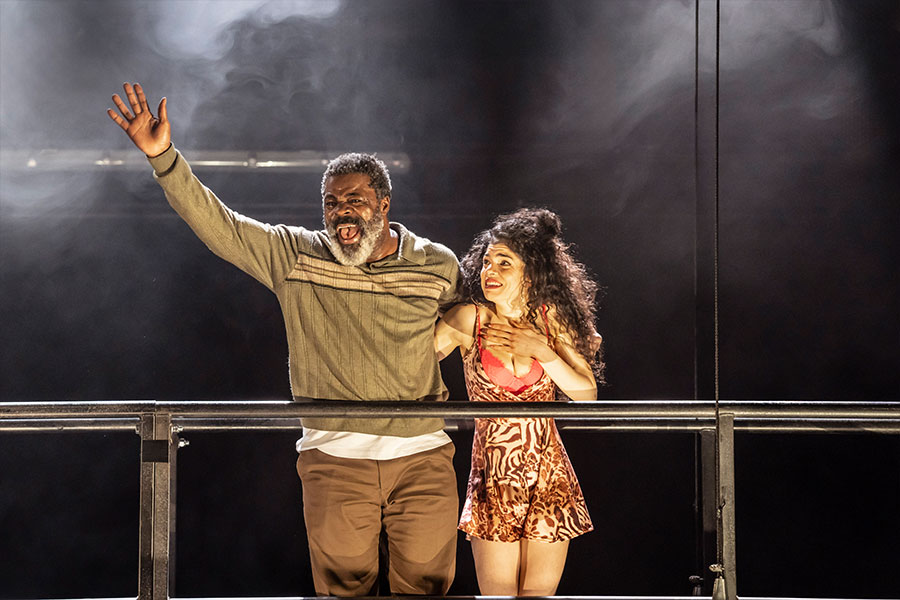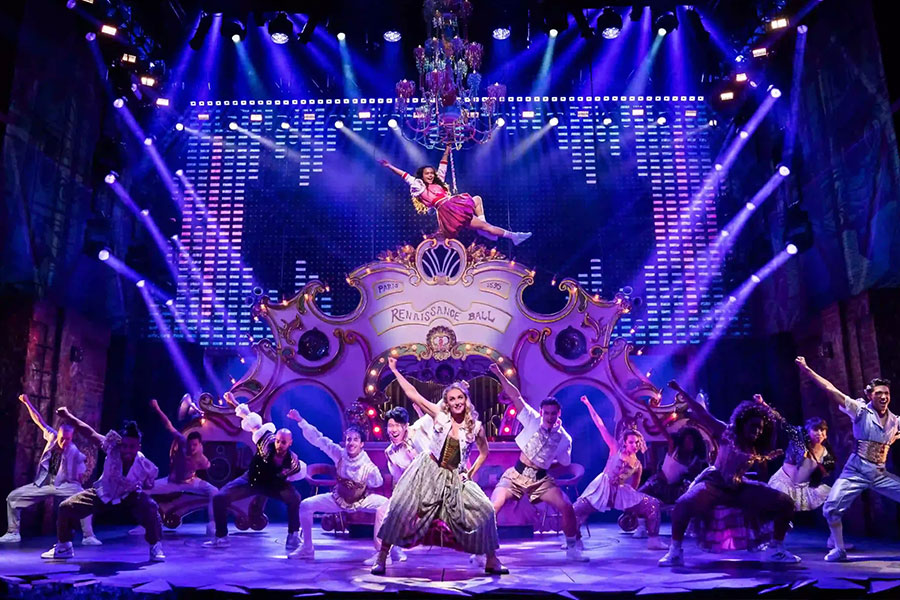Review: The Last King of Scotland (Sheffield Crucible)

© Helen Murray
Steve Waters' play, The Last King of Scotland, is a sort of double adaptation, with the challenge of being true to two sources. It's based on Giles Foden's 1998 novel, which in itself was a semi-fictional account of events in Uganda in the 1970s. Historically the play and production ring true, with television newsreaders from different countries, including the official Uganda channel, recounting events as they really happened. The plot and list of characters of the novel are simplified, of course, but emerge with vivid life, and the vital link between history, novel and play is the alarming character of Idi Amin Dada Oumee who was just as bizarre in reality as he is on the stage.
Idi Amin seized power in Uganda in 1971. Many African dictators (the recently deceased Robert Mugabe for one) began their political careers heroically fighting for freedom and ended up as tyrants. Not Idi Amin – who was self-serving from the start. We in Britain quite liked him at first: he supported the West and we've always had a strange affection for political clowns – with his multitude of grand gestures and grandiose titles. Things changed when he expelled the Ugandan Asians, sought alliances with countries such as Libya, found ways of humiliating Western diplomats and proclaimed himself CBE – Conqueror of the British Empire. As time passed, we also learned more about the wanton cruelty of his regime.
The joint protagonist of both Foden's novel and Waters' play is totally fictional, Nicholas Garrigan, a young Scots doctor who goes to Uganda in search of adventure, falls in love with the country and finds himself personal physician to Idi Amin. After an ominous opening with Garrigan being questioned by the secret services on his return to the UK, the play's structure reflects our gradually darkening perception of Idi Amin: from the joyous dancing at his assumption of power, his conscious eccentricities and comic illnesses to an audience-silencing litany of torture, gratuitous murder and violence to all who oppose his will.
Tobi Bamtefa's expansively comic and chillingly vicious performance as Idi Amin lies at the heart of Gbolahan Obisesan's compelling production, every laugh (and there are many) an implied threat, major life-changing policy changes the product of his will or whim. For instance, he enters through the audience, joking with all around him about taking a new wife (he has several) before casually announcing that all Asians must leave Uganda – or he cuts a splendid figure in kilt and full Scots regalia, naively delighted with his own appearance, before threatening the Archbishop's life if he refuses to conduct his bigamous marriage in the cathedral.
His friendship with Nicholas Garrigan might seem illogical, but what has Idi Amin to do with logic? Daniel Portman brings out all the ambiguity and uncertainty of Garrigan. A resourceful doctor, he is gauche and uncomprehending in personal matters, an innocent abroad: not such a serious matter when he misreads the intentions of the ambassador's wife, far more dangerous when he fails to realise what a monster he is serving. Portman's flurried optimism gradually gives way to a moral vacuum, clinging vainly to his Hippocratic oath as the only certainty.
Bamtefa and Portman are surrounded by a fine cast of 11, with support from four members of Sheffield People's Theatre, enough for Obisesan's splendidly fluid production to fill the Crucible stage with dancing or a cheering crowd. Akuc Bol as Kay Amin is a vivid presence, her relationship with Nicholas' fellow-doctor Peter Mbalu-Mukasa (a troubled and intense John Omole) darkening into tragedy. Peter Hamilton Dyer and Eva-Jane Willis subtly sketch in the hinterland of the relationship between the ambassador and his wife. Baker Mukasa's Jonah Wasswa, always gaining a new ministry, combines the absurd and the sinister to great effect.
Above all, Waters and Obisesan exercise masterly control of tone, from entertainment to tragedy, from eccentric comedy to the heart of darkness.

















